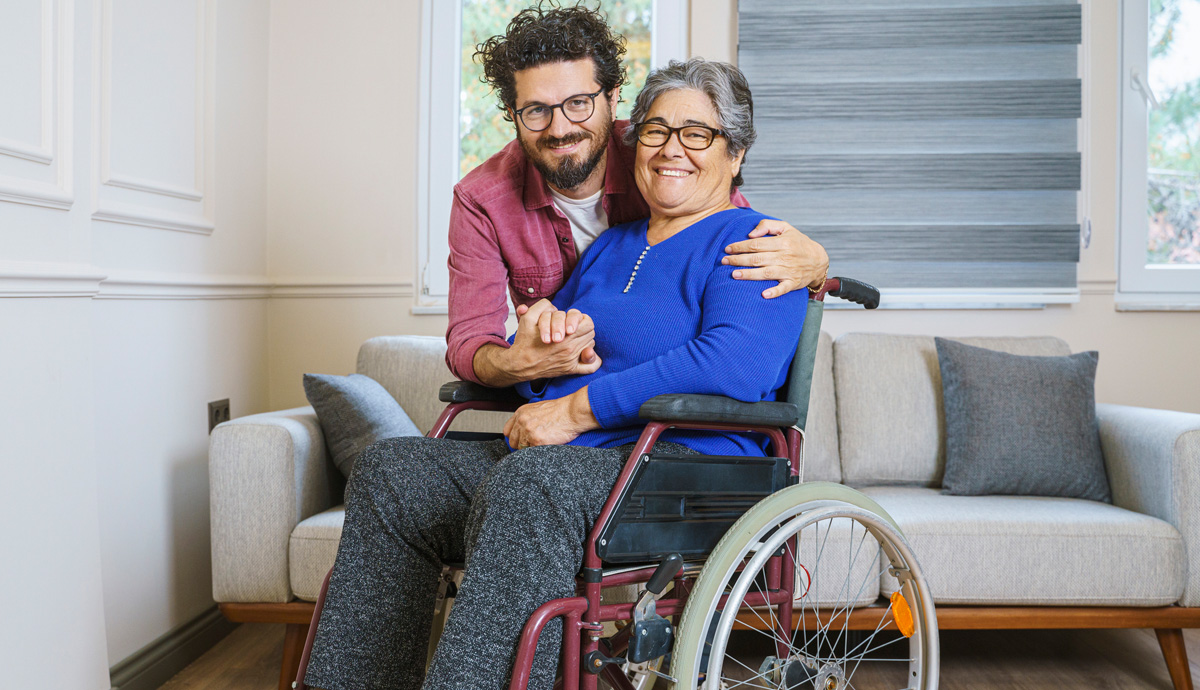What is Structured Family Caregiving?
If you're a family caregiver, you may qualify for tax-free payments through a Medicaid program in your state


Have you found it hard to work due to your responsibilities as a live-in family caregiver?
Whether your loved one needs care at certain times, or you care for your loved one on a full-time basis, the truth is that being a family caregiver can make it hard to work outside the home.
Thankfully, in many states, there is a way for family caregivers to get paid for the care they provide. Structured Family Caregiving is a Medicaid-based program that provides tax-free payments to family caregivers. Keep reading to see if you qualify.
Is Structured Family Caregiving Available Everywhere?
Not every state has a Structured Family Caregiving program. States with Structured Family Caregiving services currently include:
Connecticut
Spouses cannot be paid
Georgia
Spouses cannot be paid, but caregiver must be a relative
Indiana
Spouse can be paid
Louisiana
Spouse can be paid
Massachusetts
Spouses cannot be paid
Missouri
Spouse can be paid
Nevada
Spouse can be paid
North Carolina
Spouse can be paid
Ohio
Spouse can be paid
Rhode Island
Spouses cannot be paid
South Dakota
Spouse can be paid
If your state is not listed above, there may be a similar program in your state. Check here to find programs available in your state, because you might still be able to receive financial support for the care you give your loved one.
Even among states with Structured Family Caregiving, your eligibility may vary. For example, while some states require caregivers to be related to the person they are providing care to, other states may allow family friends to receive payments for providing in-home care too.
How Does Structured Family Caregiving Work?
Structured Family Caregiving works differently in every state where it is available. It’s important to understand your state’s requirements to qualify. For example, while some states allow spouses to receive payments, many states do not.
Still, there are some similarities we can look for across Structured Family Caregiving programs that can help you learn if you might qualify.
First, your loved one must be eligible for their state’s Medicaid program. Because Structured Family Caregiving is a Medicaid benefit, your loved one must be unable to pay for a full-time caregiver through their own means or income.
Next, your loved one must need live-in care. For example, if your loved one needs help getting from a wheelchair to their bed, or is unable to use the bathroom without help, they might need a live-in caregiver. If your loved one can move freely and safely around their home and manage their own day-to-day care, they probably do not need an in-home caregiver.
Structured Family Caregivers must:
- be age 18 or over
- be able to pass a background check
- live with the loved one for whom they are providing care
- be able to handle the responsibilities that come with being a primary caregiver
In addition to being paid, you will receive training and support and, in most cases, paid respite care when you need to take a break.
In Structured Family Caregiving, family caregivers are usually hired through a home health agency, which can provide you with both emotional and practical support. While you may already be intimately familiar with the care your loved one needs, it can be helpful to have other qualified healthcare professionals helping you as well.
Instead of earning an hourly wage, in Structured Family Caregiving, caregivers are paid a tax-free daily stipend. The stipend will vary from state to state, with some money from each payment going to the health agency providing support.
What Are the Benefits of Structured Family Caregiving?
In many situations, Structured Family Caregiving is an ideal situation for both caregivers and care recipients. Caregivers can receive income for the work they are providing for their loved one, and care recipients receive the care they need from someone they already know and trust.
Moving Forward
We know you would do anything to give your loved one the care they deserve, but you also deserve recognition for your work. As a family caregiver, you are already doing so much for your loved one, which is why you should see if you are eligible to receive Structured Family Caregiving payments. Look into your state’s Medicaid programs to see if you might qualify to receive payments.

Find Programs That Pay
Can I get paid to be a family caregiver? Let’s find out if there are programs that might provide compensation.
Find Programs That Pay